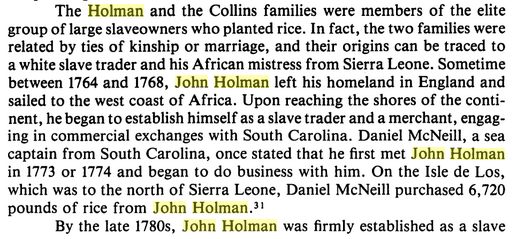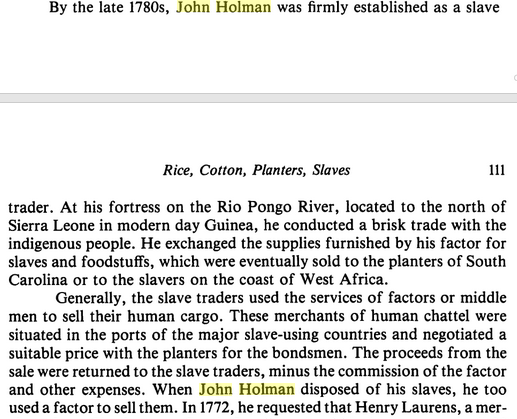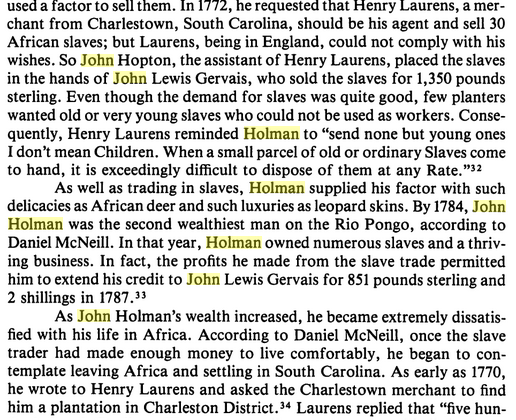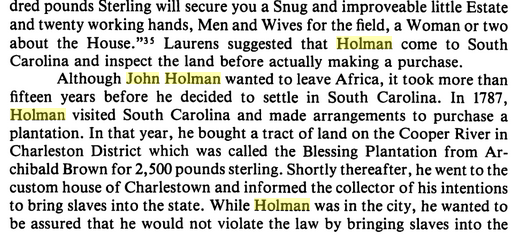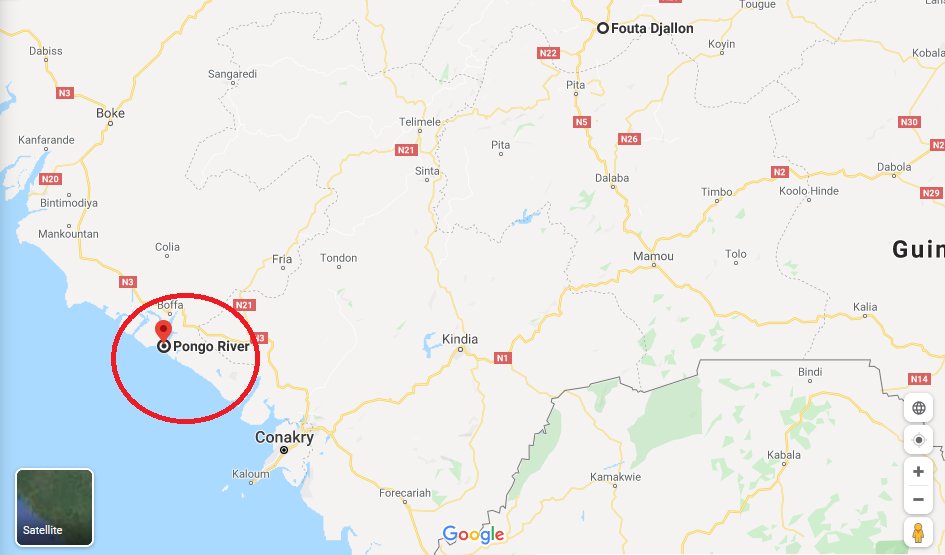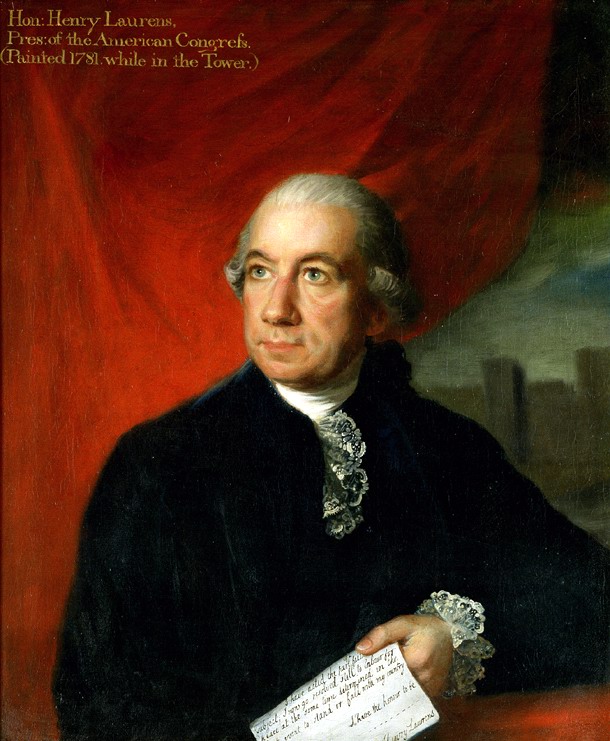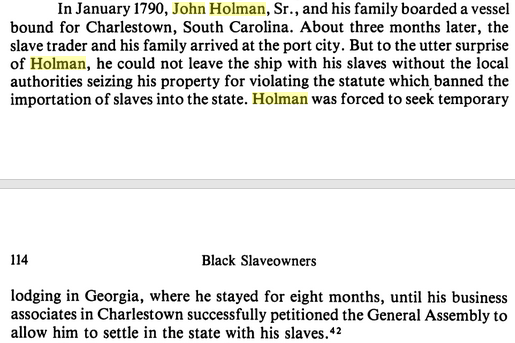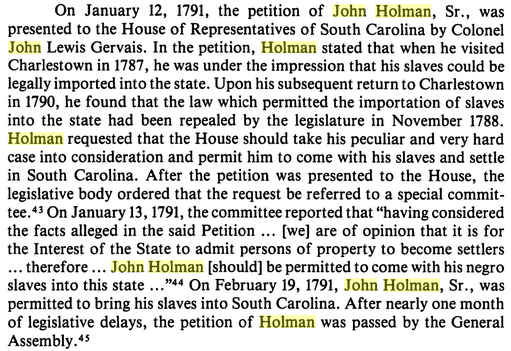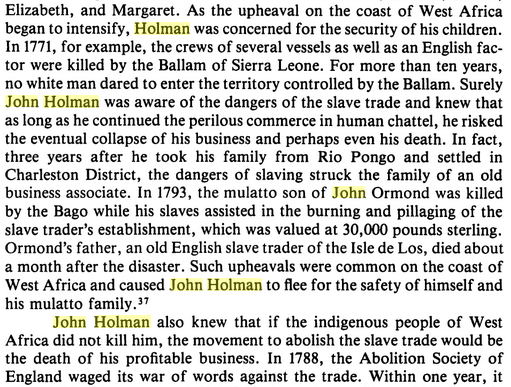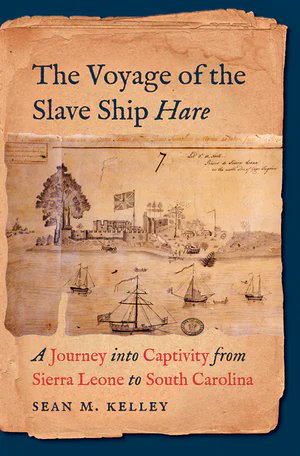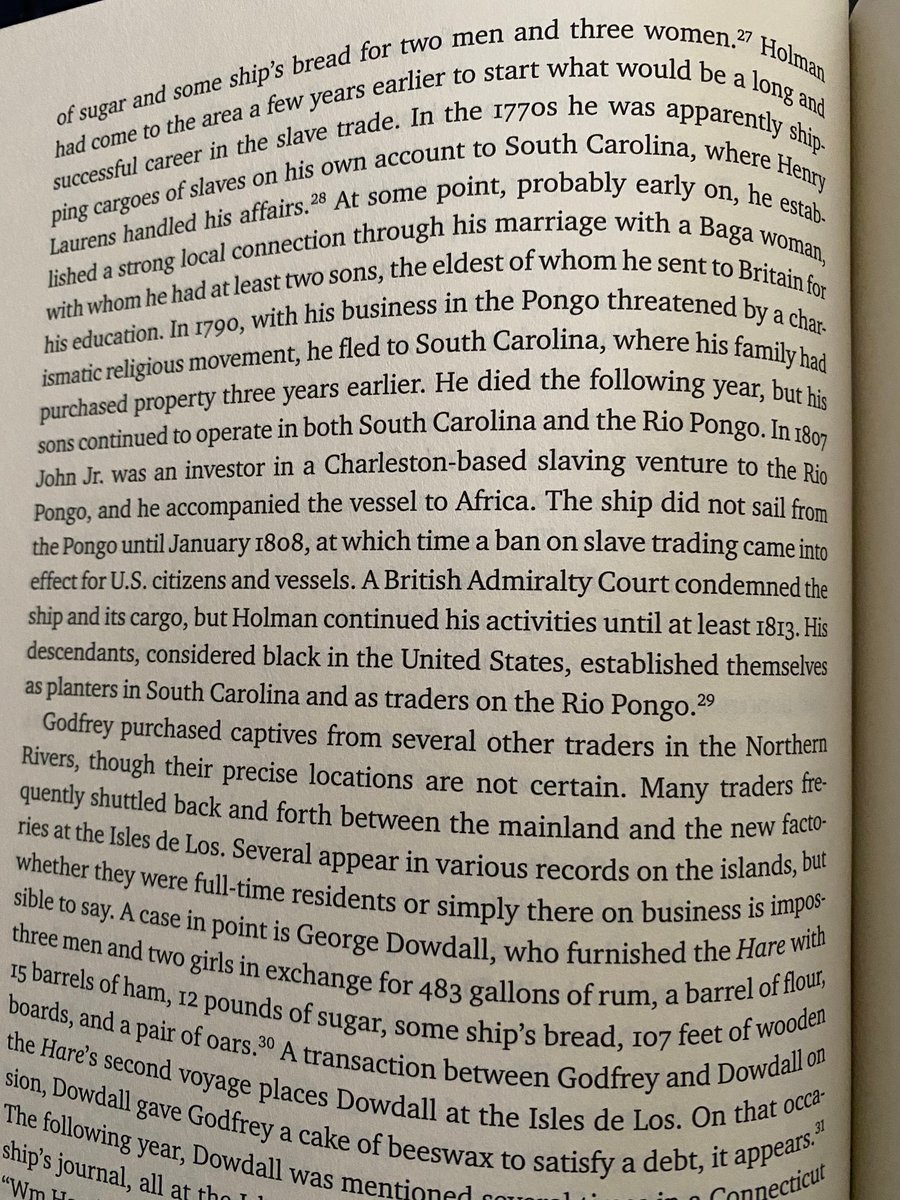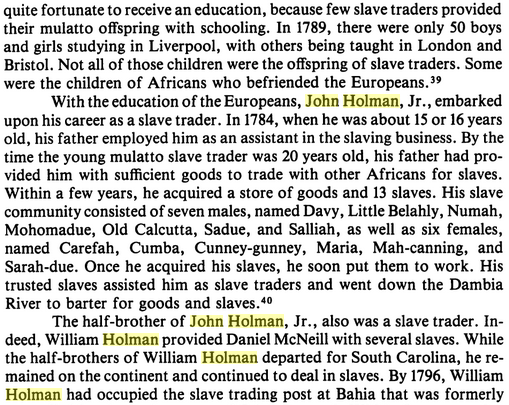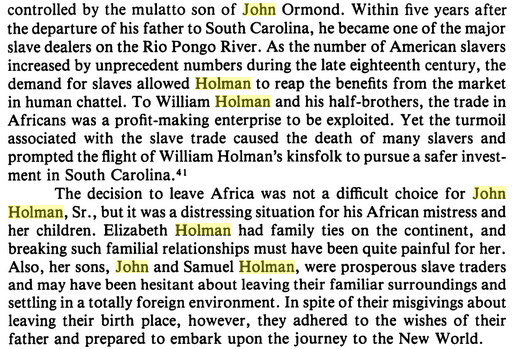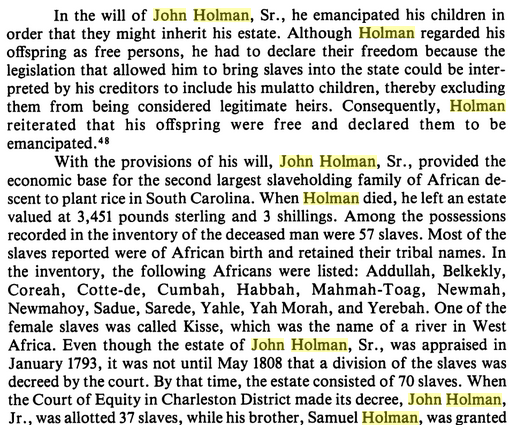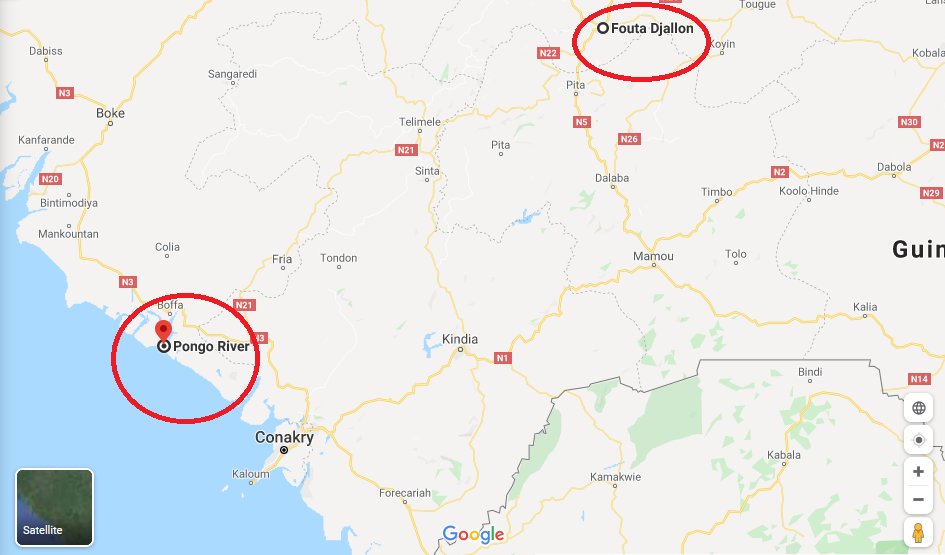Was looking through the Race & Slavery Petitions Project while doing genealogical research last night, & stumbled upon this case of an Atlantic slaver, John Holman: http://library.uncg.edu/slavery/petitions/details.aspx?pid=1085
The">https://library.uncg.edu/slavery/p... rabbit hole got deeper the more I read. Buckle up; this is going to be a wild trip.
The">https://library.uncg.edu/slavery/p... rabbit hole got deeper the more I read. Buckle up; this is going to be a wild trip.
He was a Londoner who left Britain & settled on Guinea& #39;s Pongo River in the 1760s. He became a slaver & merchant, eventually becoming very well-established in the 1780s, with a fortress on the Pongo River and economic influence over/control of nearby islands.
Here is the location of the Pongo River (Rio Pongo). Note "Fouta Djallon" in the upper middle of the map also, it will be important at the end.
He had a strong relationship with Henry Laurens—a killer of Tsalagis, a leading figure in the American War for Independence, & a partner in the leading enslaving company of North America in that era, Austin and Laurens. He& #39;s also the namesake of Laurens County in South Carolina.
Holman, the second-richest man on the Pongo River by 1784, had feared for both his life and the stability of his slaving enterprise since at least 1770, when he first asked Laurens about securing land for a plantation in South Carolina.
It wasn& #39;t until 1787 when he decided to go through with the move, after he visited South Carolina to survey and purchase land for a plantation that was to be worked by the 70 enslaved Africans he held at his Pongo River fortress.
This is where that petition that put all of this on my radar comes in. When he purchased the land, he & Laurens went to the S.C. gov to inform them that he& #39;d be trafficking 70 Africans, which they OK& #39;d.
Since S.C. had forbade the importation of enslaved Africans earlier in the decade, only to repeal it shortly thereafter, he wanted to be sure he& #39;d legally be in the clear. He then sailed for Guinea in February 1788.
However, in November 1788, the S.C. legislature again passed a law forbidding the importation of enslaved Africans. Violators faced a fine of 100 pounds per trafficked African.
Running scared from threats to his enterprise on the Pongo River, Holman arrived in S.C. in 1790 with 70 captive Africans, shocked and dismayed at the passage of the law. He temporarily settled in Georgia and petitioned authorities to make an exception for him.
He leveraged his political connections to achieve a successful petitioning of the authorities to allow him to settle in S.C. with the 70 enslaved Africans he trafficked. Shortly after, he moved to Charleston, naming his plantation on the Cooper River the "Blessing Plantation."
So, let& #39;s take a few steps back now. What were the threats to his enterprise on the Pongo River I mentioned a couple of tweets ago? Continental Africans were fiercely resisting enslavement and white encroachment on the African coast. He further feared slave trade abolition.
If you read that excerpt carefully, you noticed it said "John Holman... and his mulatto family."
That& #39;s right—Holman took a Baga woman named Elizabeth as a "wife" in the 1760s, and had several children.
That& #39;s right—Holman took a Baga woman named Elizabeth as a "wife" in the 1760s, and had several children.
This morning when I started researching this, I thought to look in the index of this book I& #39;m reading to see if John Holman is mentioned in it, since he was a major enslaver in the Sierra Leone area trafficking to South Carolina. Alas, he is.
He sent his oldest son, John Holman, Jr., to Liverpool for schooling. As a teenager, the half-African John Jr. got involved in the family enslaving business. He and his brothers, Samuel and William, became profitable enslavers in their own right, both on the Pongo & in S.C.
In his will, John Holman, Sr. emancipated his half-African children to allow them to inherit his estate. The Holman family went on to become the second largest rice-selling enslaver family of African descent in South Carolina.
Remember that map earlier showing the location of the Pongo River? I had Fouta Djallon indicated on there, because I have genetic matches to distant Fulani cousins whose families are from there.
It& #39;s not far-fetched that the Holman family trafficked some of my ancestors.
It& #39;s not far-fetched that the Holman family trafficked some of my ancestors.

 Read on Twitter
Read on Twitter